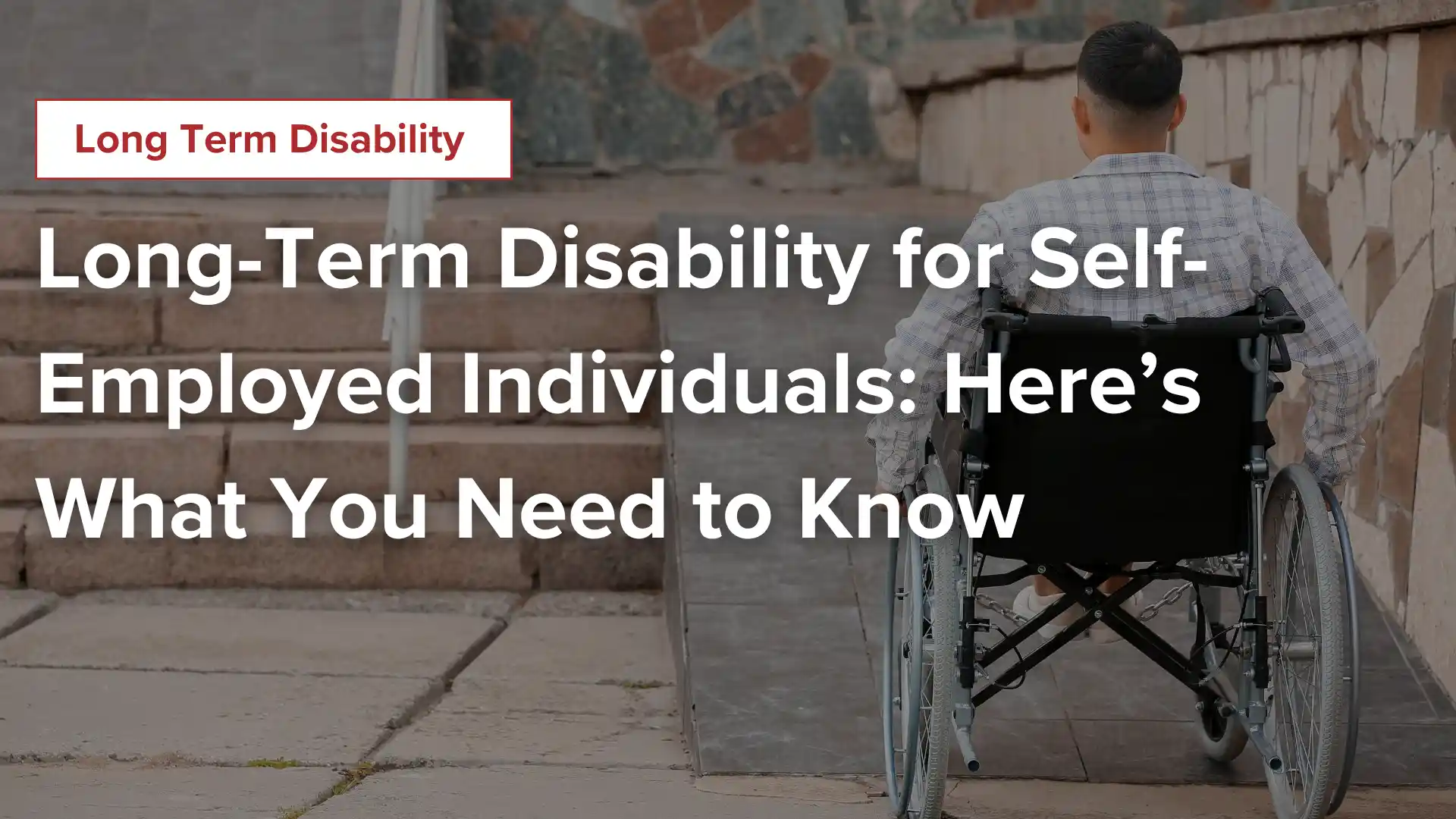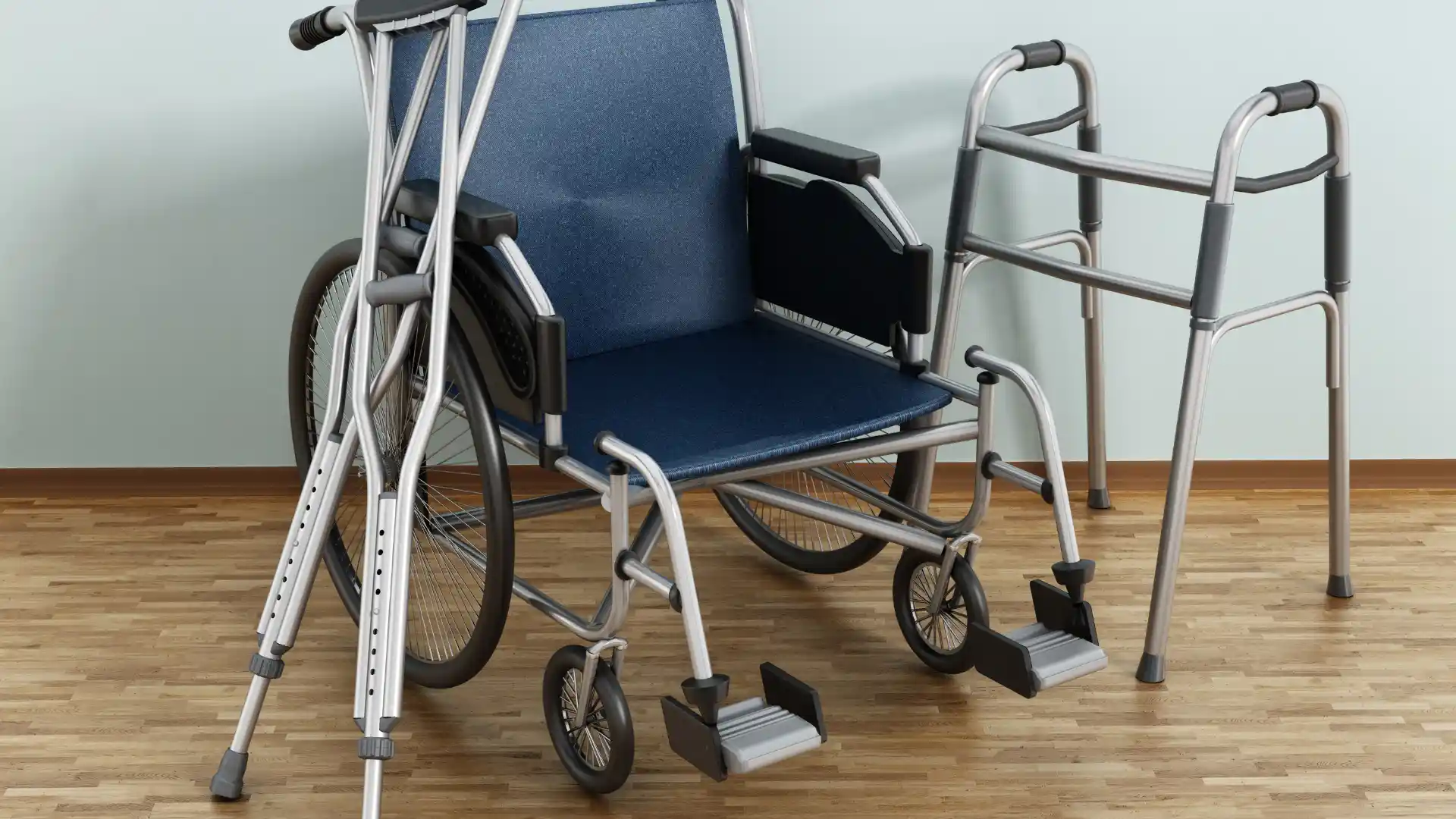Posted on Friday, August 22nd, 2025 at 9:00 am

Most workers can access long-term disability insurance through group health plans sponsored by their employers. However, self-employed individuals don’t have this option. So, what self-employed long-term disability options are actually available if you run your own business and can’t rely on a traditional employer-sponsored plan?
Individual long-term disability insurance is available through several insurance companies and can be precisely what self-employed workers need to provide them with peace of mind. These insurance policies are highly customizable and can be tailored to your needs. Making them some of the best disability insurance for self-employed people looking for flexible protection.
Can Self-Employed People Get Long-Term Disability Insurance?
Self-employed people can get long-term disability (LTD) insurance. However, obtaining it can be more complicated for the self-employed for two main reasons.
First, they cannot simply be added to a group health plan the same way W-2 employees can. And second, they must be able to prove their self-employed income, which can involve providing the insurer with several types of evidence.
Key Features to Look for in a Policy
When choosing an LTD insurance policy as a self-employed individual, it’s crucial that you look for these key features:
- Benefit Amounts – Most LTD insurance plans cover between 50 and 70 percent of your pre-disability income. It’s important to understand what your income needs will be if you become unable to work, so you can choose a plan that will pay out enough.
- Premiums – The higher the benefit amounts, the higher the premiums. While high coverage is often ideal, it’s crucial to balance it with what you can afford to pay in premium costs.
- Benefit Periods – LTD plans have different periods during which they will pay out wage loss benefits. Some LTD plans can have benefit periods as short as a year or two, while others may be active until you reach retirement age.
- Waiting Periods – Since LTD insurance isn’t meant for short-term disability, these policies have waiting periods that must expire before you can begin receiving payments. These waiting periods may be as short as 60 days or as long as a year or more.
- Own Occupation Riders – This policy add-on allows you to recover compensation if you cannot perform your specific job, even if you can physically perform a different job. Own occupation riders are often ideal for the self-employed.
- Cost of Living Adjustment Riders – A COLA rider increases your benefits over time to keep up with inflation. Without this rider, your benefits may have less purchasing power over time.
- Residual Disability Benefit Riders – This add-on allows you to receive benefits even if you can work in a lessened capacity. If your disability limits the hours you can work, this rider can help make up the difference in your income.
How to Prove Income When You’re Self-Employed
Proving income as an employee is as simple as providing a copy of your W-2. However, self-employed individuals don’t have that luxury. Instead, you may need to provide your tax returns, bank statements, and profit and loss statements. The exact documentation required may depend on the insurer and your line of work.
Why is proving income important? Your pre-disability income is what your insurance benefits are based on. If you have a policy that pays out 60 percent of your monthly income after a disability, the insurance company needs to know how much your pre-disability income was.
Tips for Buying LTD Insurance When You’re Self-Employed
 When buying LTD insurance as someone who is self-employed, it’s essential that you take the following steps to make the most of your policy:
When buying LTD insurance as someone who is self-employed, it’s essential that you take the following steps to make the most of your policy:
- Review your current expenses to determine the coverage amount you would need to keep up with your bills during your disability period.
- Assess your finances to determine the maximum amount you would be willing to spend on insurance premiums.
- Understand how the policy calculates your pre-disability income. Some policies look at the previous 12 months, while others may look at the previous 24.
- Prepare your tax returns so you have them ready for when it’s time to file for coverage. This can reduce delays.
- Be ready for the insurance company to thoroughly investigate your finances through a process known as underwriting.
- Consider the waiting period and determine how long you can go without your LTD benefits kicking in if you become disabled.
Contact Our Long-Term Disability Insurance Lawyers
If you’re looking for a long-term disability insurance policy as a self-employed individual, contact Capitan Law at (267) 419-7888 for a free consultation with an experienced LTD insurance lawyer in Philadelphia. Our team can help you find the right LTD insurance policy and file for coverage. With an LTD policy in place, self-employed individuals can rest assured that a disability won’t leave them unable to make ends meet.
Related Post
Back Pain and Long-Term Disability Benefits
Why Choose Our Cigna Long-Term Disability Insurance Lawyers?